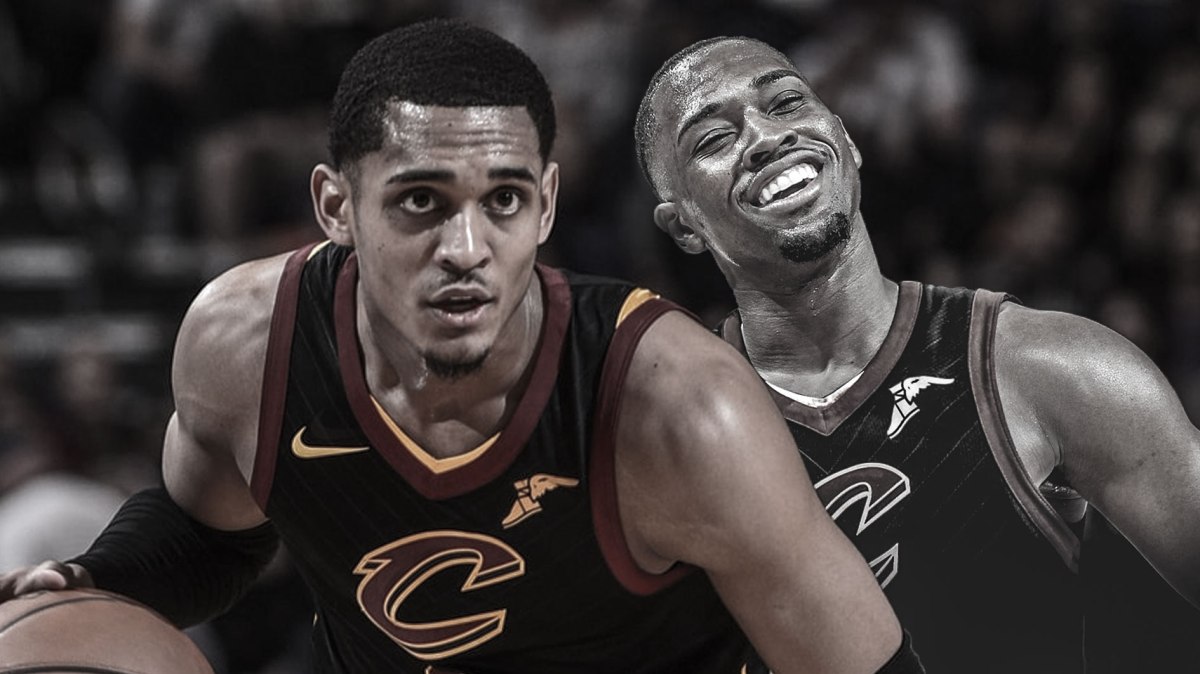After an incredibly poor playoff performance, most Cavs fans didn’t have high expectations for point guard Jordan Clarkson. He seemed like part of the problem with the team, rather than part of the solution. But after a full offseason in Cleveland and adjusting to his new role, Clarkson had the best season of his career, and proved himself to be one of the NBA’s premier bench scorers.
Clarkson’s 2018-2019 season was a pleasant surprise, and gives him value for the future, whether it’s with the Cavaliers or not.
Clarkson was acquired from the Los Angeles Lakers at the trade deadline in February 2018. That deal was part of the flurry of transactions that general manager Koby Altman made to drastically transform the team in a last-ditch effort to compete in the NBA Finals and convince LeBron James to remain in Cleveland, neither of which happened. The trade with the Lakers ended up being Isaiah Thomas, Channing Frye, and the Cavs’ 2019 first-round pick (which would become Moritz Wagner) for Clarkson and Larry Nance Jr. Even though the Cavaliers ended up getting Frye back, and both Clarkson and Nance played big roles on the team this past season, the trade was incredibly one-sided.
The Lakers wanted to shed as much salary as possible in order to open up cap space for the next two summers, where they would be active in free agency. Both Thomas and Frye had expiring contracts, while Clarkson was signed through 2019-2020 for nearly $26 million total, and Nance wasn’t going to be extended.
Not only did the Cavaliers take on Clarkson’s contract and give LA cap relief, they also gave up a first-round pick in the deal. Ironically, as a result of this trade, the Lakers were able to sign LeBron James to a max contract, and will still have another max slot open this summer.
But while the trade was pretty bad for the Cavs, Clarkson’s postseason play was even worse. In 19 games, he averaged 4.7 points, 1.7 rebounds, and 0.7 assists in 15 minutes, while shooting 30% from the field and 24% from beyond the arc. His tunnel vision and refusal to pass led to bad shot after bad shot, and he didn’t even play in games 3 and 4 against Golden State.
Last season however, Clarkson looked like a very different player. In 81 games, he averaged a career-high 16.8 points per game, and while he shot a pedestrian 32% from three-point range, he did that on 5.5 attempts per game, 1.4 more than his previous career best.
He scored a total of 1,364 points off the bench, setting a new team record for points by a reserve. He was third in bench scoring in the league, behind only Lou Williams and Spencer Dinwiddie, giving him a legitimate argument for Sixth Man of The Year. He scored 10 or more points in 73 games, beating out Williams by one game.
Clarkson averaged just 2.4 assists per game, but his role wasn’t to distributed the ball; it was to lead the bench unit and provide scoring while Sexton and other starters rested. He wasn’t relied upon to provide floor spacing while playing with LeBron James, and without that pressure, he flourished. This was his best season since 2015-2016, his second in the league, and last as a starter.
Clarkson’s success in his new role gives the Cavs a blueprint for Collin Sexton. Especially after the All-Star break, Sexton was a very effective scorer, but his passing remained subpar. He did end the season with a career-high 10 assist performance, but his average for the season was only 3.0. He is just a rookie, but three assists for a starting point guard playing nearly 32 minutes per night is simply unacceptable.
Sexton should work long and hard this offseason to improve his passing skills and floor vision, but if he isn’t able to do that, taking over Clarkson’s role as bench scorer may be the best thing for him, especially if the Cavaliers end up drafting Murray State’s Ja Morant.
Clarkson will be playing the final year of his contract next season, which makes him a very valuable trade chip. A contending team would be getting a top-tier bench scorer, along with over $13 million in salary relief for the 2020 offseason. It would be wise for Cleveland to take advantage of Clarkson’s value, and get a nice return of draft picks for him at the deadline.
Until then, he will continue to lead the second unit as he did in 2018-2019, where his performance was encouraging given what happened the previous season. Clarkson may not be around for much longer, but he’s been a good asset, both on the court and in the locker room.
